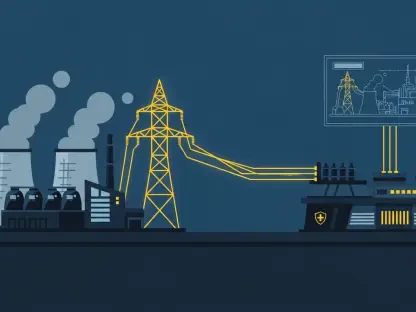In an unexpected series of legislative maneuvers, the U.S. Senate has proposed a groundbreaking tax on renewable energy, presenting a significant divergence from the country’s existing clean energy trajectory. This proposal not only seeks to implement additional excise taxes on wind and solar power projects but also endeavors to halt critical clean energy tax credits after 2027. While the House of Representatives initially pushed for moderate Inflation Reduction Act cuts, Senate Republican leaders took a more aggressive stance, indicating a paradigm shift in the energy policy landscape. Particularly notable is the emphasis on curtailing reliance on foreign supply chains, especially those dominated by Chinese entities. Moreover, the proposition includes discontinuing tax credits for electric vehicles and residential solar installations, prompting heated debates among stakeholders and policymakers alike. Amidst all these developments, the political landscape remains tense as these proposed changes have sparked divergent opinions about the strategic direction of U.S. energy policy, leading to polarizing discussions and potential implications for multiple sectors.
Industry Backlash and Economic Concerns
The introduction of the Senate’s proposal has met with substantial backlash from various quarters, particularly in the renewable energy sector. Critics argue that this move jeopardizes the burgeoning clean energy industry, which has played a crucial role in job creation and economic revitalization. Former Trump adviser Elon Musk has been one of the vocal critics, branding the proposed legislation as detrimental to U.S. jobs and strategically disadvantageous. Musk’s concerns reflect broader apprehension within the industry about shifting focus from sustainable energy sources to more conventional, emission-heavy alternatives. The potential cessation of key tax credits could stymie growth in renewable sectors, which are instrumental in transitioning away from fossil fuels. Economic analysts and environmental advocates emphasize that, aside from the immediate economic repercussions, the proposal risks alienating investment in technologies that are vital for long-term energy security and sustainability. As this legislative debate unfolds, it remains to be seen how economic priorities will be balanced against strategic energy objectives in national policy.
Energy Security and Policy Divisions
The Senate’s propositions have ignited divisions within its ranks, evident from the narrow margin by which the proposal advanced. Figures like Senators Rand Paul and Thom Tillis have voiced concerns, highlighting potential risks to energy availability and warning against possible shortages. The debate underscores a profound schism over how best to secure the nation’s energy future, weighing traditional energy reliance against advancements in renewable technologies. Challenges in consensus-building become apparent as divergent views have resulted in contentious exchanges that highlight the complexities involved. Support for certain elements of the proposal from entities like the U.S. Chamber of Commerce underscores the multifaceted nature of energy policy. While endorsing some aspects, such as ensuring robust national production, the Chamber remains cautious about taxing energy production too aggressively. The intricacies of this debate reflect the multifaceted challenges faced by lawmakers striving to balance economic growth with environmental sustainability and energy independence. As these discussions continue, their outcomes will significantly impact the nation’s strategic energy posture.
Future of U.S. Energy Strategy
In a surprising turn of legislative events, the U.S. Senate has introduced a novel tax targeting renewable energy, marking a sharp deviation from America’s established clean energy course. This proposal aims to introduce new excise taxes on projects involving wind and solar energy while stopping vital clean energy tax credits after 2027. Initially, the House of Representatives advocated for modest cuts under the Inflation Reduction Act, but Senate Republicans have adopted a tougher approach, signaling a significant shift in energy policy. A key aspect of this proposal is reducing dependence on foreign supply chains, especially those dominated by China. The plan also suggests ending tax credits for electric vehicles and residential solar systems, igniting intense debates among stakeholders and lawmakers. As these initiatives unfold, the political atmosphere grows charged, with varied opinions about the future direction of U.S. energy policy, sparking polarized conversations and potential impacts on numerous sectors.









